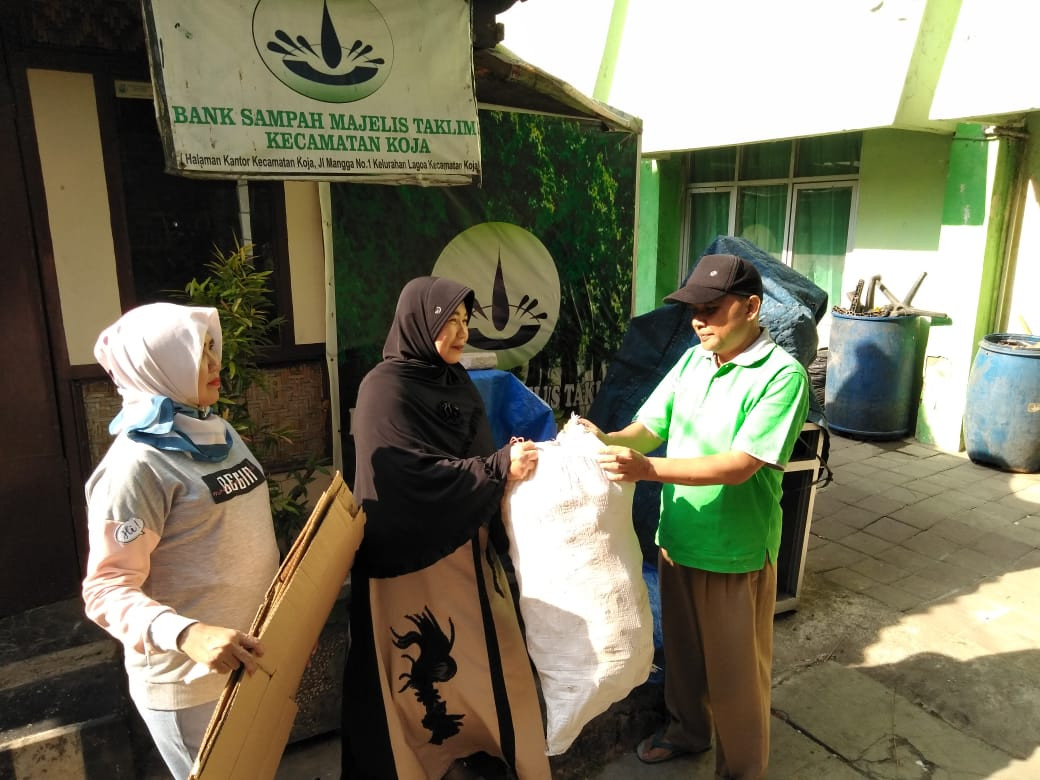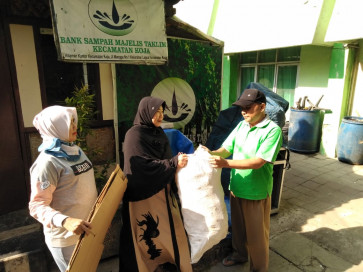Popular Reads
Top Results
Can't find what you're looking for?
View all search resultsPopular Reads
Top Results
Can't find what you're looking for?
View all search resultsIn North Jakarta, traveling abroad, paying tuition fees made possible by collecting trash
“I started educating people to manage their household waste better. Sometime later, I invited people to send their inorganic household waste to the waste bank that I set up at home," said Solihin, founder of Bank Sampah Majelis Taklim.
Change text size
Gift Premium Articles
to Anyone
F
or Solihin, a 52-year-old man living in Koja District, North Jakarta, household waste is as precious as diamonds. Through Bank Sampah Majelis Taklim, a monetizeable household waste collection system he established in 2014, he has turned piles of waste into education, medical provision and even an overseas travel scheme for his “customers”.
Solihin established his waste bank, believing that as a Muslim preacher, he also had a responsibility to educate locals to better protect the environment.
“I started educating people to manage their household waste better. Sometime later, I invited people to send their inorganic household waste to the waste bank that I set up at home,” he told The Jakarta Post in a recent interview.
Customers could deliver their household waste to Bank Sampah Majelis Taklim, where Solihin would then weigh and pay for the trash accordingly based on the kind of waste collected. Like a regular commercial bank, his customers could make deposits in their accounts with the money they collected from the waste.
“If they don’t sort the household waste, I’ll give them Rp 2,000 [14 US cents] per kilogram of waste. If they sort it, I’ll pay Rp 4,000 per kg for plastics bottles, Rp 1,200 to Rp 3,000 per kg of cardboard boxes and Rp 6,000 per kg of plastic cups,” he said.
Solihin manages the waste bank with his family, receiving little to no profit in the first year of its establishment. The lack of financial gain, however, did not stop him from giving back the bank's earnings to the community through various social programs.
“The first social program I organized was giving free wheelchairs and walking sticks to poor elderly people in the community,” he said, adding that so far he had distributed around 20 wheelchairs and 10 walking sticks.

















